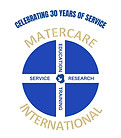Declaration of the “Science in Service of Life” International Congress
- MaterCare International

- Aug 30, 2019
- 4 min read
The following has been translated to English from the original Polish.
Introduction
On June 21st and 22nd, 2019, an International Congress, themed “Science in Service of Life”, was convened in Rzeszów, Poland (Translated from: Międzynarodowy Kongres "Nauka w służbie Życiu" 21-22.06.2019 r., Rzeszów). The Congress was organized by the Marshal's Office in Rzeszów in cooperation with the University of Rzeszów, St. Hedvig Provincial Clinical Hospital No. 2 and the “Yes for Life” Foundation, in association with MaterCare International and the Catholic Society of Polish Physicians. A broad range of excellent papers were presented, including 22 from Poland and 15 papers presented from 13 other countries from around the globe.
Approximately 500 doctors, nurses, midwives, psychologists, lawyers, priests and nuns, students, family advisors, mothers and fathers attended this international event. On the day preceding and following the Congress, there were important religious, cultural and social events connected with the spirit and themes of the Congress (Notably, the concert ”One Heart, One Spirit,” and the March for Life and Family). Jointly, these events gathered thousands of participants. This Congress has filled an important gap in the scientific and public discussion on reproductive health, including its medical, social, psychological, ethical and spiritual aspects.
Proceeding the Congress, the following joint declaration was prepared:
Declaration
1. The benefits to humankind offered by advances in medical knowledge and technology are threatened when their ethical application is influenced by liberal ideologies characterized by ‘Cultural Marxism’ where, for instance, “killing is called generosity and proper care for the prematurely born, disabled or the dying person defined as a burden, a waste of emotional and financial resources…” (1).
These cultural threats also affect procreative medicine, where people can be divided into those ‘entitled’ and ‘not entitled’ to live, and where the fundamental identity of the child is undermined through practices such as surrogate motherhood and gamete donation.
2. The participants of the Congress recognize the innate right to life of every human being, from conception to its natural end. The dignity and sanctity of human life is an essential foundation of our civilization and has been affirmed by the teachings of the Catholic Church, especially the encyclicals ‘Humanae Vitae’, ‘Evangelium Vitae’ and ‘Laudato Si’.
Respect for the sanctity of human life should be the overriding principle of medical practice, and, likewise, promotion of the right to life is a fundamental duty of public authorities. No human being can decide if and when another human being’s life should end.
A physician should remain an advocate for children, defending their life even when this is contrary to the parent’s wishes.
3. Motherhood requires special care from all of us, as it is the key to a healthy family and society. Obstetrics should recognize social, psychological and spiritual factors in maternal and child health, alongside physical ones, and should be seen as the ‘Medicine of Motherhood’. Rather than limiting ourselves to supporting ‘women’s rights’ we should prioritise the need to advocate for the rights of mothers.
4. Reproductive medicine should take into account up-to-date medical knowledge, provide preventative healthcare, and offer restorative treatment and rehabilitation based on natural methods of procreation, without violating the principle of the sanctity of human life, nor the conscience of either health care workers or their patients. The two dimensions of faith and reason are not opposed to each other and, in fact, both need to be considered in offering holistic healthcare, which simultaneously honours the meaning of procreation and is respectful of life.
5. Many jurisdictions currently allow medical activities which harm human life and are contrary to the conscience of healthcare professionals and/or their patients. Just laws should be built on a system of values with deontological principles, creating space for conscientious objection.
6. Freedom to act according to conscience is a human right consequent on the dignity of the human person and exists no matter what legal restrictions may be imposed to the contrary by a particular state or other entity. A ‘conscience clause’ must be written into legislation to allow a healthcare worker to refuse to perform a medical procedure which is contrary to his or her system of values. Such a clause is not the actual source of freedom of conscience but is used to preserve this freedom in cases where there may be a conflict between parties. If a conscience clause obliges a health practitioner to find another practitioner to perform a medical procedure that they consider a reprehensible act, as is the case in many countries (and until recently in Poland), then such a clause does not preserve freedom of conscience at all and is a violation of the human rights of the health practitioner. We are opposed to the application of conscience clauses being restricted to abortion alone, as there are other medical procedures which may be contrary to a particular practitioner’s conscience, e.g. euthanasia.
7. The participants of the Congress expressed their heartfelt appreciation to the nation of Poland for its ongoing effort to preserve its religious and cultural identity for future generations.
July 5th, 2019
Reference:
(1) Wesley J. Smith „Kultura Smierci” (Death Culture), Legra Publishing House Krakow, 2019


Comments